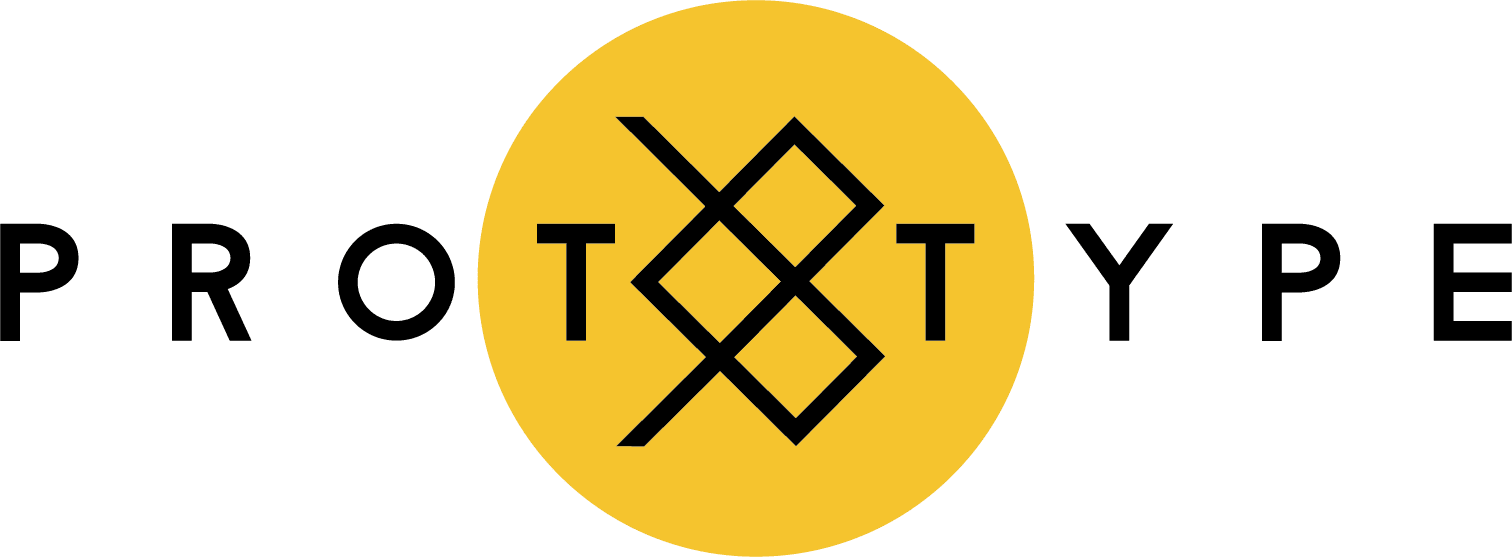
we are
Ethical & Sustainable Clothing Manufacturing
A Common-Sense Approach to Ethical Manufacturing
Many designers and labels care deeply about ethical fashion and sustainability in their supply chain. All the attention has created a demand, and a financial incentive, for suppliers to provide higher levels of concern for the safety and health of their staff, as well as more environmentally-friendly options for the manufacturing process and supplies. With sustainable clothing manufacturing in the spotlight, how do we as a company address respond to this demand?
The Dark Side of
"Sustainable" Fashion
Unfortunately, however, where there’s a financial incentive there’s also a motivation to bend the rules. This has lead to a “greenwashing” effect where suppliers can easily just employ these labels to lead consumers to believe that they’re contributing to something great when in fact it’s just more of the same old. It takes no effort at all to simply say “yes” when a client asks for organic cotton. Who’s going to know? There’s literally no way for a customer to know, so they have to trust the label. The label has to trust the manufacturer and the manufacturer has to trust the mill and the mill has to trust the filament supplier and they have to trust the cotton grower and………and……
That’s a whole lotta trust right there! What do you think are the chances that just one person in that chain might tell a little white lie to make some extra money?
What is Ethical Manufacturing?
Ethical manufacturing involves a commitment to producing goods in a manner that respects the rights and well-being of all stakeholders involved, including workers, communities, consumers, and the environment. To achieve ethical manufacturing, several key considerations and principles must be taken into account:
- Labor Rights and Fair Wages
- Ensure fair wages and benefits for workers, exceeding minimum legal requirements.
- Uphold workers' rights to safe and healthy working conditions.
- Prohibit child labor, forced labor, and discrimination in the workplace. - Working Conditions
- Provide safe, clean, and healthy working environments.
- Address issues such as proper ventilation, lighting, and ergonomic facilities.
- Offer reasonable working hours, breaks, and time off. - Transparency and Accountability
- Maintain transparency throughout the supply chain, disclosing information about suppliers, subcontractors, and manufacturing processes.
- Establish mechanisms for workers to voice concerns and report grievances without fear of retaliation.
- Conduct regular audits and inspections to ensure compliance with ethical standards. - Environmental Sustainability
- Implement eco-friendly practices to minimize the environmental impact of manufacturing.
- Reduce waste, energy consumption, and greenhouse gas emissions.
- Use sustainable materials and promote recycling and reuse. - Community Engagement
- Engage with local communities where manufacturing facilities are located.
- Contribute positively to the local economy through job creation and community development.
- Respect indigenous rights and protect cultural heritage. - Supply Chain Responsibility
- Evaluate and select suppliers and subcontractors based on their commitment to ethical manufacturing.
- Ensure that suppliers adhere to the same ethical standards and principles.
- Promote responsible sourcing of raw materials. - Ethical Sourcing and Fair Trade
- Source raw materials and components from suppliers who adhere to ethical and fair trade practices.
- Support initiatives that improve the livelihoods of small-scale producers and marginalized communities. - Product Quality and Safety
- Maintain high standards of product quality and safety.
- Conduct rigorous testing and quality control processes to ensure consumer safety. - Consumer Education
- Provide clear and accurate information to consumers about the products' origin, materials, and ethical practices.
- Educate consumers about the importance of ethical manufacturing and responsible consumption. - Continuous Improvement
- Commit to ongoing improvement in ethical manufacturing practices.
- Regularly assess and update policies and procedures to adapt to changing circumstances and emerging ethical standards. - Legal Compliance
- Ensure full compliance with all relevant local, national, and international laws and regulations governing labor, environmental, and safety standards. - Ethical Marketing and Advertising
- Avoid deceptive or manipulative marketing tactics that mislead consumers about the ethical nature of the product or manufacturing process. - Fair Compensation for Suppliers
- Pay suppliers fair prices for their products and services to support their sustainability.
There are lots of confusing terms to describe what is, in essence, a simple concept: A product or process that is in balance with the world and produced with the best intentions. There’s a vast complex universe of things to be considered: the ecology affected by the sourcing of the materials, the life cycle, the waste process, and of course the complicated lives and needs of those people who produce the items.
If you go far enough down the rabbit hole, you’ll find faults with every product and various ways that the supply chain is out of balance with the positive intentions of the customer. So how can we navigate this complex web of truth & lies to find truly ethical fashion manufacturing options?
Introducing:
Certified by Prototype
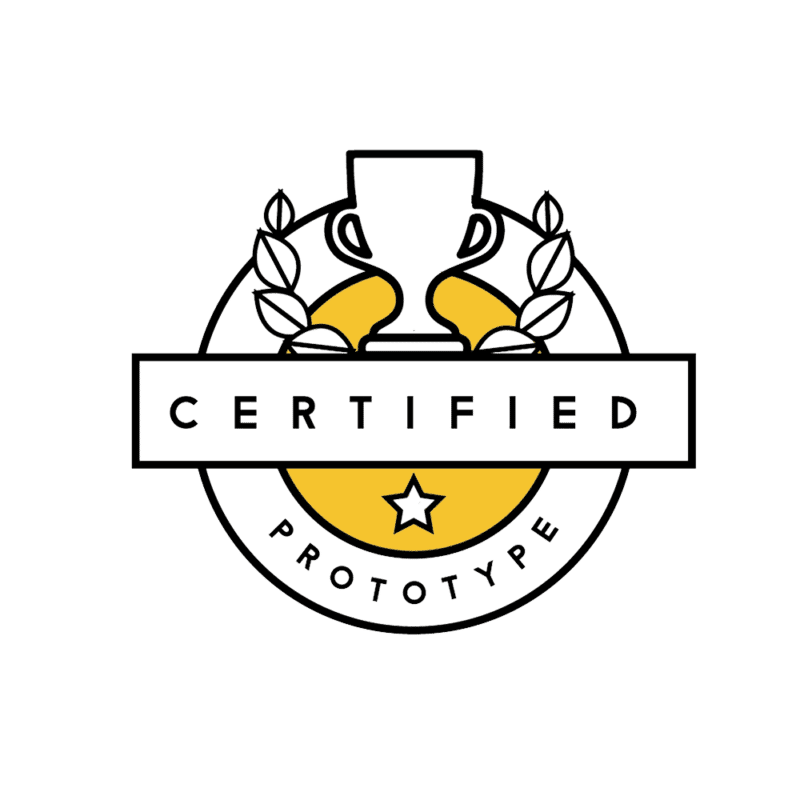
Certified by Prototype is our answer to this dilemma. It’s not an “organic” certification, it’s not “fair trade”, it’s all of them and none of them. It’s what we call a Common Sense Certification. When evaluating a potential manufacturer or product, we simply evaluate the following:
- What are the working conditions like? Is it clean? Well lit? Does it appear to be a place that cares about the environment and its people?
- How are the workers treated? What are their hours? Are they cared for as if they were valuable, as if their personal health and safety are a concern to the company?
- Are the workers paid a living wage? Is healthcare available? What about holidays and paid time off?
- What is the quality of the products? Do they look as if they were built with pride and care? Or do they look like cheap, throw away type products?
- What is the supply chain? Do the decision makers care about where the raw materials come from? Do they care about the environmental impact?
- How is their customer service? Do they support their product? Do they receive repeat customers?
These are mostly all related to ethical concerns. All subjective of course and will have a wide variety of answers. But when you physically go into a business, meet the people there and have a good thorough look around, it generally becomes pretty obvious right away whether they meet this basic criteria. Some do, but sadly, most don’t meet the expectations of ethical manufacturing.
Additional Specialist Badges
Every supplier has their strengths and weaknesses. And every customer has different priorities. We recognize that and we want our clients to be able to find ethical manufacturers and suppliers whose values align better with their own. For that reason, in addition to being Certified by Prototype as an ethical manufacturer, we also recognize our suppliers and manufacturers for their own special strengths…
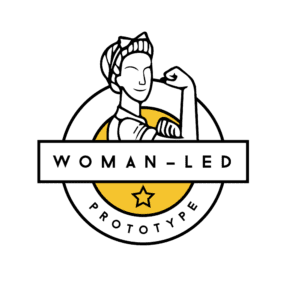
This certification is given to factories owned or operated by women.
Women-Led Businesses
Women lead the vast majority of our client companies. Awesome right?! We want to give our clients the opportunity to work with other women in business. Together we rise! A Woman-Led certification signifies that the company is either owned or operated by a woman or team of women in leadership positions. Women make up the majority of the workers in most garment factories. But it is typically men who run the business. We believe that by encouraging woman-led companies, we can help to restore the balance.
Inclusive Workplace
An Inclusive certification means that the workplace is LGBT+ friendly, that the supplier does not discriminate based on gender or sexual orientation, and that it is a safe environment for those who might be vulnerable. Some of these businesses are owned or managed by LGBT+ or have a generally open-minded point of view. We do not give out this certification simply because an owner indicates a willingness to tolerate LGBT+. Keep in mind that most of our suppliers are in Indonesia, where it can sometimes be a significant risk to be open, due to societal and family pressures. We give this certification out to those brave and kind ethical manufacturers who truly deserve special recognition.
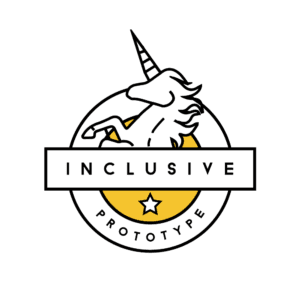
This badge is given to those manufacturers dedicated to inclusion.
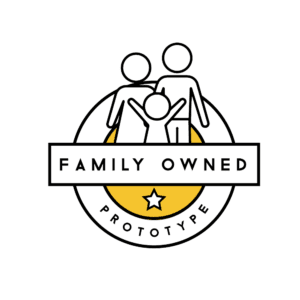
Family Owned and Operated
This might be an easier badge to earn, but for many of our clients and for us, businesses owned by families often align with our values. Family businesses honor tradition, loyalty, relationships and a generally better sense of integration with their communities. A supplier needs to not only be family-owned, they must also embody the positive qualities we associate with ethical manufacturing to earn this badge.
Ethical Manufacturer
We award the Ethical badge to a manufacturer who goes above and beyond the call of duty. Not only do they meet the needs of customers and staff, but they also must really demonstrate a powerful commitment to making the world a better place. A truly ethical manufacturer spares no expense in providing the best workplace possible for their staff, such as daycare for staff children, special training and continuing education.
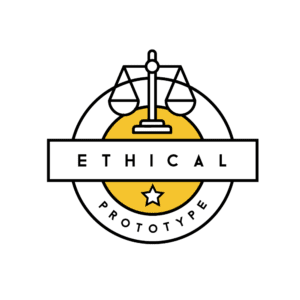
This badge is given for special commitment to ethical manufacturing
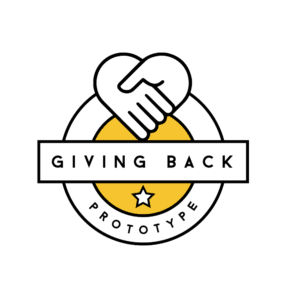
This badge is given to those manufacturers who give back to their community.
Giving Back
The Giving Back badge signifies that the supplier takes extra care of its people and community by participating in charitable work. Giving back to the community can take many forms: regular service work, financial support or other activities. This badge requires an ethical manufacturer to make a next-level commitment to making the world a better place.
